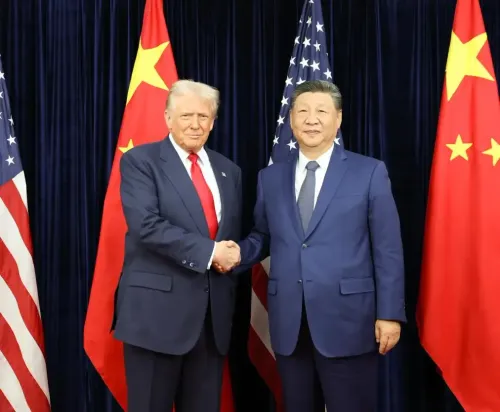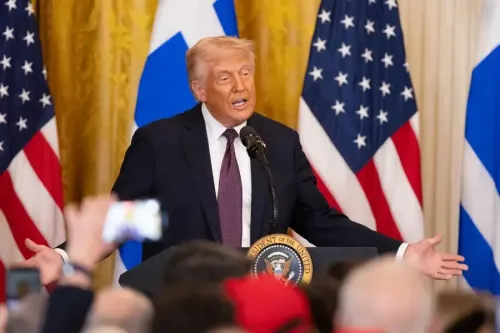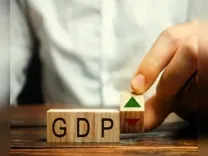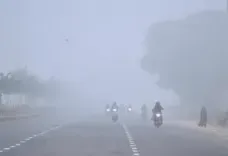Are Only Fringe Elements Advocating for Khalistan?
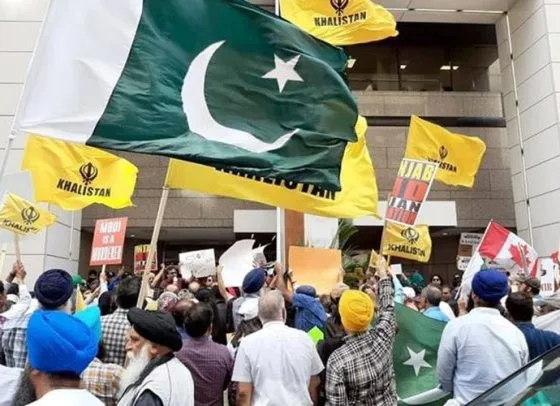
Synopsis
Key Takeaways
- The Khalistan movement is largely supported by fringe elements.
- Majority of Sikhs in India do not support Khalistan.
- Political parties may manipulate the Khalistan narrative for electoral gain.
- Recent protests have raised concerns for the Sikh community abroad.
- Awareness and historical context are critical to understanding this issue.
Ottawa, Aug 29 (NationPress) The aspiration for Khalistan, which gained momentum post-1970, has predominantly been fueled by fringe groups within India and abroad. This is notable considering that Sikh political leaders had decisively chosen India over Pakistan prior to the 1947 partition, according to a report released on Friday.
The report suggests that the overwhelming majority of Sikhs in India recognize this historical context and do not endorse the notion of an independent homeland referred to as Khalistan.
"Political entities in India confront a perplexing scenario regarding the Khalistan demand, which has been voiced in various forms both domestically and internationally since the early 1970s. This issue has gained critical importance following the disturbances initiated by Khalistan supporters overseas in March 2023, triggered by government actions against a self-proclaimed separatist Sikh leader, Amritpal Singh, and his followers in Punjab, India," the report from ‘Khalsa Vox’ elaborated.
“Intense protests and chaotic incidents were recorded in key nations with substantial Sikh diaspora communities, including the UK, USA, Canada, and Australia. Sikhs, who represent a majority in Punjab, are also dispersed throughout various regions in India and the world. Many expatriate Sikhs include radicals who have been granted political asylum in their host nations. These individuals, equipped with more resources and opportunities, have become increasingly assertive in advocating for the Khalistan agenda,” it further stated.
The report traces the origins of the Khalistani campaign back to Jagjit Singh Chauhan, followed by Jarnail Singh Bhindranwale, Dal Khalsa, militant factions in the 1980s and 1990s, Simranjit Singh Maan, and the US-based banned group Sikhs for Justice, with Amritpal Singh being the latest figure promoting this narrative.
According to the 'Khalsa Vox' report, the push for Khalistan is a strategy devised by unscrupulous political parties in India aiming to create division within the Indian community along communal lines to garner sympathy and votes during elections.
Nonetheless, Amritpal Singh's campaign ultimately faltered, mirroring the failure of Chauhan’s "government in exile".
"The narrative surrounding Amritpal Singh’s downfall should act as a wake-up call for all, highlighting the collapse of the Khalistan conspiracy. The protests overseas could ultimately harm the Khalistan movement and may create challenges for the protestors, as host nations might enforce stringent measures to preserve domestic order and maintain diplomatic relations with India, a significant global player," the report stressed.
"The principal factor behind the Khalistan movement’s decline is the awareness acquired by the populace in Punjab through their experiences in the 1980s and 1990s, alongside their easy access to social media. Sikhs in Punjab also express concerns for their community members residing in various parts of the country outside Punjab. It remains essential for interested political factions in India to tread carefully moving forward," it concluded.




